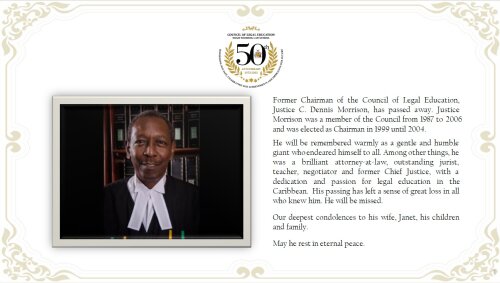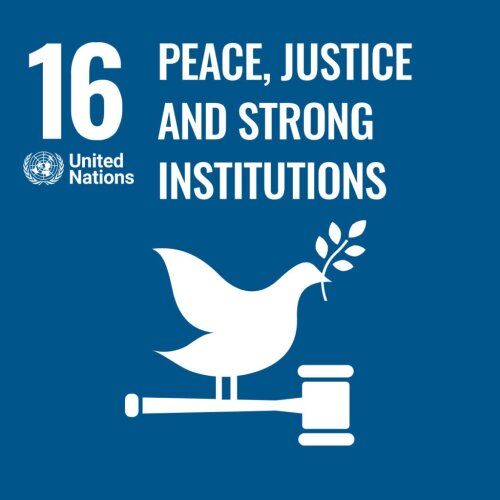Best Asylum Lawyers in Trinidad and Tobago
Share your needs with us, get contacted by law firms.
Free. Takes 2 min.
Or refine your search by selecting a city:
List of the best lawyers in Trinidad and Tobago
About Asylum Law in Trinidad and Tobago
Asylum law in Trinidad and Tobago is designed to provide protection to individuals who are fleeing persecution from their home countries. The country's legal framework allows asylum seekers to apply for refugee status through mechanisms established in partnership with the Office of the United Nations High Commissioner for Refugees (UNHCR). Although Trinidad and Tobago is not part of the 1951 Refugee Convention, it observes certain international standards in the processing and protection of asylum claims. The process aims to ensure that those with a well-founded fear of persecution are not returned to situations where their life or freedom may be threatened.
Why You May Need a Lawyer
Seeking asylum involves navigating a complex legal landscape, often with high stakes for applicants. Common situations where legal assistance may be necessary include: preparing and submitting asylum applications, gathering and presenting evidence to support claims, appealing denied applications, navigating interactions with immigration authorities, and understanding rights and obligations under local and international laws. Lawyers experienced in asylum law can provide critical guidance and support throughout these processes.
Local Laws Overview
The laws concerning asylum in Trinidad and Tobago are primarily guided by national immigration policies and complemented by international standards. Key aspects include:
- Applicants must demonstrate a credible fear of persecution based on race, religion, nationality, membership in a particular social group, or political opinion.
- The Immigration Division is responsible for processing asylum applications.
- Applicants receive a certificate that prevents deportation while their case is being processed.
- There are no established national laws specifically granting refugee status; decisions are made on a case-by-case basis.
Frequently Asked Questions
What is the process for applying for asylum in Trinidad and Tobago?
Asylum seekers must contact the UNHCR or relevant governmental bodies to express their intent to apply. They will undergo interviews and must provide evidence supporting their claim of persecution.
How long does the asylum process take?
The length of the asylum process can vary significantly, depending on the complexity of the case and the current backlog of applications.
Can I work while my asylum application is being processed?
Generally, asylum seekers do not have the right to work legally while their application is under review. However, this may be subject to change and requires consultation with local authorities.
What if my asylum application is denied?
You may file an appeal or seek a review of the decision. Legal counsel can assist in understanding and pursuing these options.
Are my family members included in my asylum application?
Asylum applications typically cover immediate family members, but each case is evaluated individually.
Is there legal aid available for asylum seekers?
Access to legal aid for asylum seekers can be limited. However, some NGOs and charitable organizations may offer pro bono services.
What rights do asylum seekers have in Trinidad and Tobago?
Asylum seekers have the right to protection from return to a country where they face danger, but their rights to work, healthcare, and education can be limited.
Can I travel outside Trinidad and Tobago while my application is pending?
Travel outside the country during the application process may impact your case and is generally advised against unless absolutely necessary.
Will my information be kept confidential?
Yes, the information provided in the asylum process is kept confidential and is not shared without your consent.
What happens after I receive refugee status?
If granted refugee status, you are entitled to certain rights, including protection against deportation and possibly access to social services. Specific rights depend on evolving local policies.
Additional Resources
For those seeking more information or assistance, the following resources may be helpful:
- Office of the United Nations High Commissioner for Refugees (UNHCR) in Trinidad and Tobago
- Living Water Community - NGO providing support for asylum seekers
- Immigration Division of the Ministry of National Security
- Legal aid organizations and pro bono services in Trinidad and Tobago
Next Steps
If you require legal assistance concerning asylum, consider the following steps:
- Contact local NGOs or UNHCR for initial guidance and support.
- Seek consultations with lawyers specializing in immigration and asylum law.
- Gather all relevant documentation and evidence related to your case.
- Stay informed about changes in local and international refugee policies that may affect your situation.
Remember that understanding the asylum process thoroughly and seeking professional legal assistance when necessary can be crucial to your application’s success.
Lawzana helps you find the best lawyers and law firms in Trinidad and Tobago through a curated and pre-screened list of qualified legal professionals. Our platform offers rankings and detailed profiles of attorneys and law firms, allowing you to compare based on practice areas, including Asylum, experience, and client feedback.
Each profile includes a description of the firm's areas of practice, client reviews, team members and partners, year of establishment, spoken languages, office locations, contact information, social media presence, and any published articles or resources. Most firms on our platform speak English and are experienced in both local and international legal matters.
Get a quote from top-rated law firms in Trinidad and Tobago — quickly, securely, and without unnecessary hassle.
Disclaimer:
The information provided on this page is for general informational purposes only and does not constitute legal advice. While we strive to ensure the accuracy and relevance of the content, legal information may change over time, and interpretations of the law can vary. You should always consult with a qualified legal professional for advice specific to your situation.
We disclaim all liability for actions taken or not taken based on the content of this page. If you believe any information is incorrect or outdated, please contact us, and we will review and update it where appropriate.
Browse asylum law firms by city in Trinidad and Tobago
Refine your search by selecting a city.














